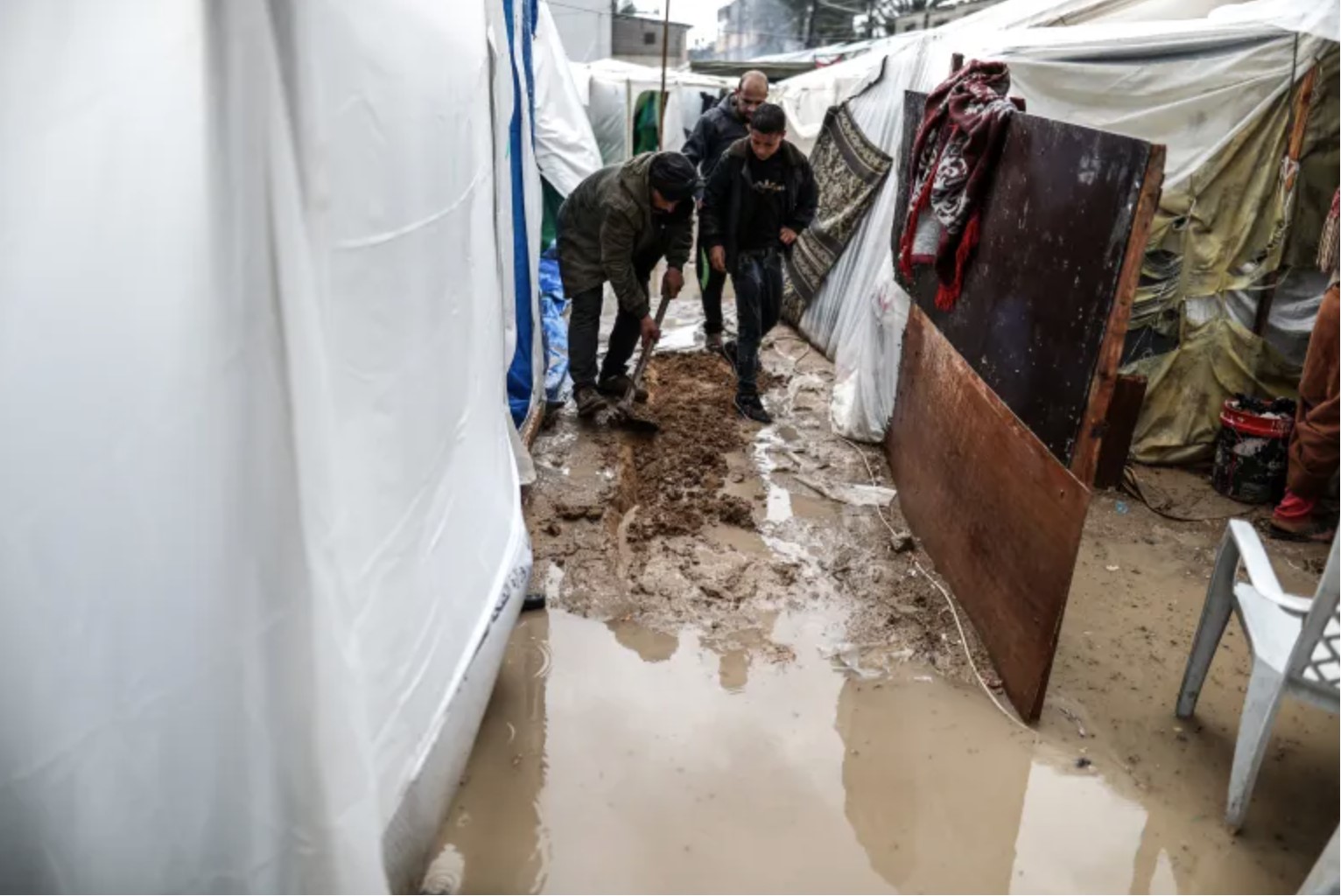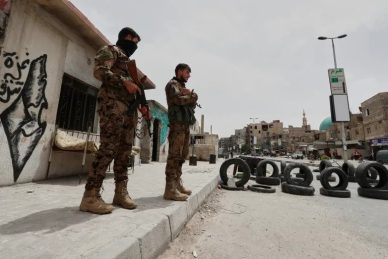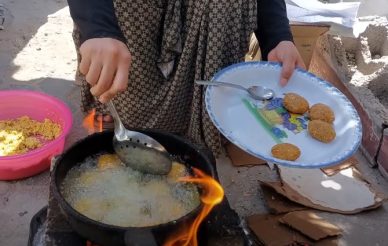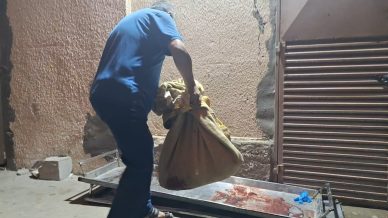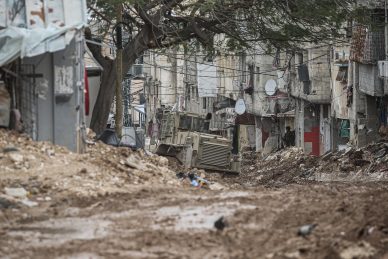In the southern Gaza Strip, specifically in the Rafah governorate, rain has sparked panic among displaced individuals like Reem Al-Saqa. She resides within one of the shelters managed by the United Nations Relief and Works Agency (UNRWA) and hurriedly rushed to collect her clothes, which had been left hanging to dry in the morning sun.
Inside a small tent at the shelter’s courtyard, Saqa (36 years old) weeps bitterly as she observes her clothes completely soaked by the rainwater. Displaced due to the Israeli war on Gaza, she, along with others, faces indescribable hardships, witnessing various forms of suffering.
Describing her situation and that of others who evacuated from the Al-Rimal neighborhood in Gaza, she states, “There is no roof here to protect us, no wall to ease the cold, and the rain only adds to our suffering, damaging the belongings we obtained with difficulty.”
In the Al-Mawasi area west of Khan Yunis in the southern Gaza Strip, displaced individuals live in tents that offer little protection against winter cold, quickly flooding with the first raindrops.
Attempting to alleviate his struggles, Akram Al-Ghazali, a young man displaced from northern Gaza, covers his makeshift tent in that area with pieces of nylon. He tries to protect the blankets and mattresses he owns, but in vain, as the light covers quickly become soaked with rain.
Al-Ghazali fled his home in Jabalia with the minimal weight of clothes and belongings, hoping to return after the hardships end if his home still stands.
As winter sets in, the need for humanitarian aid among the displaced becomes critical, amid international appeals and demands for swift delivery and increased quantities.
Bilal Al-Hattou (45 years old), another displaced person residing with his family in an under-construction house west of Deir al-Balah in the central governorate, stated that the most challenging aspect of this aggression is having to face bombing, fear, rain, and cold simultaneously—an ordeal beyond human endurance.
Seated in front of a fire he ignited for warmth and to cook a small amount of food for his family of eight, Al-Hattou highlighted the severe shortage of supplies and food aid distributed to the displaced.
He tries to overcome hunger with limited food supplies, but fear and cold are emotions beyond human control, he explains.
Since October 7th, the Israeli occupation army has waged a bloody war on Gaza, resulting in 18,412 martyrs and 50,100 injuries, mostly among children and women, along with extensive infrastructure damage and an unprecedented humanitarian catastrophe.

